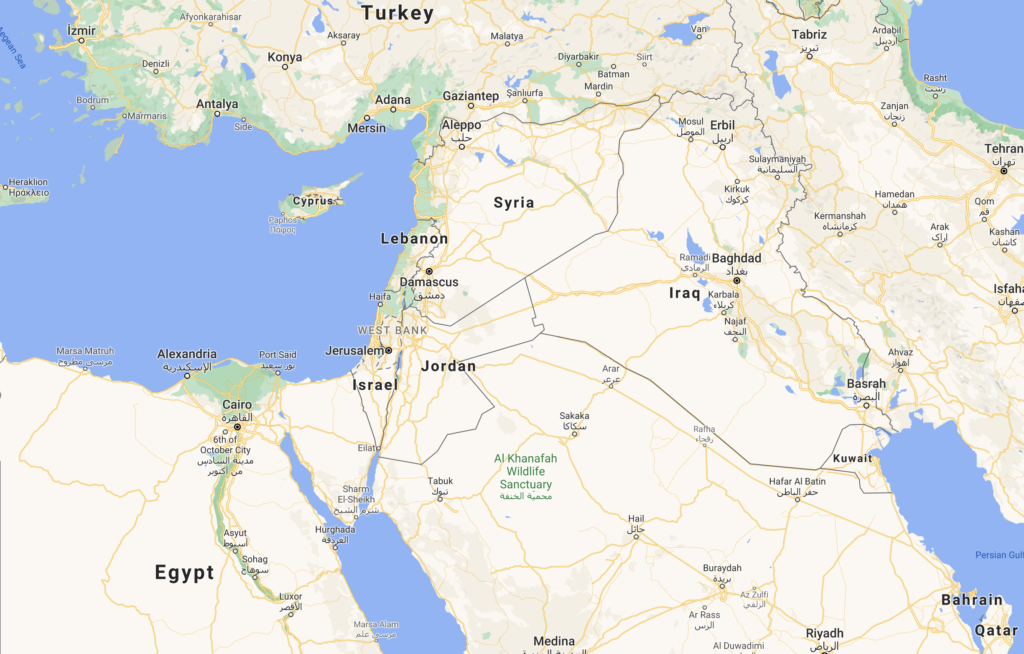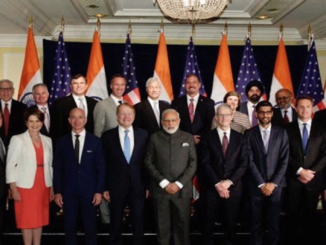
In 1958, Pakistan leased the Badaber base near Peshawar to the U.S. for ten years. The base was to be used as a U.S. communications facility and for ten years, it collected accurate technical and scientific information on the intentions and capabilities of the Soviets. In his letter to President Johnson in 1968, President Ayub Khan stated the reasons why Badaber facility was to be closed and how Pakistan kept its commitments under the agreement even at the risk of damage to its political interests and national security. Ayub said, “We in Pakistan cannot remain unmindful of the swift changes which are taking place in the world and especially around us today. We cannot ignore the threats which are developing to our existence, particularly from the feverish arms build-up in India. The arms supply policy of your country provides us with no comfort. If anything, it aggravates the imbalance between India and Pakistan.” That was 1968. Fast forward to 2020. Read Ayub’s quote again. There are swift changes taking place in the world and in our immediate neighborhood which we cannot ignore. In addition to India’s consistent arms build-up, and military modernization, the Israel-United Arab Emirates peace agreement or the Abraham Accord brokered by the U.S. has direct implications for Pakistan, the biggest of which is that of the encirclement of Pakistan given the prospects of Indo-Israeli proximity near our waters. It is time for Pakistan to think about developing a joint naval base with China at Gwadar to safeguard its national security interests. 1968 was about closing a base. 2020 should be about thinking of opening one.
Just like China’s encirclement by the Quad (India, Australia, Japan and the U.S.) in the Indo-Pacific, Pakistan’s encirclement is also a foregone conclusion by India and Israel in the northern Indian Ocean and the Arabian Gulf. Pakistan is at the heart of the evolving political and security architecture in the Middle East. Not only is Pakistan the only Muslim country with nuclear weapons and the second largest Muslim population in the world, Pakistan is the leading Muslim country raising its voice at international forums for the Kashmiris along with the Palestinians, which hurts the image and political interests of those countries who are the perpetrators of the genocide of Muslims in the two occupied territories by India and Israel, and calls out the international community which is a silent spectator of these war crimes and genocide in the making. Pakistan has survived and not collapsed as a failed state despite best efforts by the great strategic minds around the world working in unison to break Pakistan since its inception to date. Such a state which refuses to collapse, is resilient and bounces back from abyss each time, should be feared and must be curtailed so as not to reach its true potential as a middle power. But with China now, Pakistan has an opportunity in Gwadar, to operate a joint naval base and develop port facilities for the Chinese submarines and surface warships to dock there.
The Abraham Accord, will allow the U.S., and Israel, to drive political benefits in the UAE and later with Oman and Bahrain if and when they join, which would serve their joint effort to isolate Iran in the region. But Pakistan should be under no illusion that the proximity and influence this coalition will gain near our waters will remain limited to Iran.
Israel has sophisticated electronic warfare capabilities with hi-tech weapons on which it has spent billions of dollars primarily in its attempts to scuttle the possibilities of a nuclear Iran. Israel’s electronic warfare capabilities can disrupt electric grids, internet service, cellphone networks, and suspend emergency frequencies so that first responders and law enforcement agencies cannot communicate during emergency. The computer worm, Stuxnet, which sabotaged the Iranian nuclear facility in Natanz, was the first such cyber weapon used by a state which would otherwise have used missiles to destroy that very facility. While with Iran, Israel’s political objectives are different, conveyed in no uncertain terms that its nuclear infrastructure is prone to both military and cyber attacks, with Pakistan electronic and cyber warfare will be employed. And now with open access in the UAE, it should not be too difficult to imagine what Israeli proximity and presence can achieve against Pakistan and its nuclear infrastructure.
China reworked its Armed Forces and learned lessons from the U.S. information and space warfare against it which began in the early 1990s. The formation of PLA’s Strategic Support Force (SSF) in 2015 created synergies between China’s space, cyber and electronic warfare. Reports suggest that SSF is set out to achieve President Xi’s dream of making “PLA mechanised by 2020, informative by 2035, and a world-class army by 2050.” Pakistan’s military strategy too, needs to be reworked to achieve cross-domain integration to augment its cross-domain deterrence and for that there is no better trusted partner than China.
Pakistan must survey the changing nature of emerging threats in its broader neighborhood, especially in the northern Indian Ocean and Arabian Gulf region and proactively map strategic implications of those threats for Pakistan’s national security interests. An immediate need, therefore, is to strategize the role Gwadar will play in future in Pakistan’s strategic calculus which is beyond its current economic outlook and utility.




A very incisive article on recent establishment of relations between Israel and UAE. My compliments to the author on analyzing multiple dimensions of the issue.
The overt announcement is in aftermath of years of tacit relations and businesses between Israel and GCC countries. It does pose a challenge to Pakistan’s diplomatic stance but in the context of a threat from Israel, the magnitude is not likely to radically change with this new development. The reason, Israel and India, our erstwhile enemy already has a nexus with Israel and a major exporter of their advanced weaponry. There has been joint attempts against Pakistan by this duo, in the past which were effectively thwarted.
The question is should we continue with our seven decades old policy against Israel for the sake of Arabs and Palestine or show ‘ some’ accommodation in consonance with changed geo- strategic realities?The interest of Pakistan is in engagement with Israel without establishing a diplomatic relations to ward off any threats, appease strong Jewish lobby in US and have access to top of line Israeli technologies in agriculture, arid farming, water conservation and weaponry etc . By engagement, we can serve the Palestinian cause better than by confrontation.This requires a bold initiative by our leadership and to shape environments,rather than be swayed by them!
There is indeed a serious need to debate the evolving strategic environment and develop options that best serve Pakistan’s national interests. These options could include rebooting some old relations, stabilizing present ones, and building new linkages.
Naval bases in Ormara and Gwadar permanently stationing Chinese vessels will probably follow the formal announcement of Pakistan’s military alliance with China. The author is as forthright in advocating her opinion on this as any have come out of Pakistan. Pakistan indeed finds itself in a state of flux through no fault of its own: it cannot help but strip away clean from the past and look into the future. Its economic woes are a permanent retarding force and so are its geopolitical realities like a) trying to play the peacemaker in Afghanistan, b) trying to delicately balancing itself amidst the greatest power grab of the 21st century vis a vis US & China and c) involving itself in a dangerous juggle that has now formally ensued in the Muslim world vis a vis the Arab states, Iran and Turkey. The need for a formal military alliance with China has to come from Pakistan with absolute and unequivocal certainty. There will be no going back. China will demand respect and obedience and it will take a special test of character to follow through with utmost competence. But it will signal clarity and departure from Pakistan’s perpetual state of flux. China does not do military alliances, yet! But the future is nigh. A Pakistan that is forthright in its decision making and clear about its future, will also force its enemies’ hand. In that context, Prime Minister Imran Khan’s recent statement that “Our future is linked with China” bodes very well.
Unfortunately Rabia akhter is unaware of minority persecution in Pakistan and persecution of uighur muslims in china.
We unfortunately have a tendency to view any development near or distant as designed to harm Pakistan. It is obvious that the developing Gulf-Israel axis is primarily aimed at Iran. It will have security implications for Pakistan and other regional countries too but straightaway jumping to develop a joint base with China at Gwadar may not be prudent. Firstly the Chinese navy doesn’t yet have the potential to deploy independent naval task forces like the US carrier groups to distant waters. They are coping with the serious challenged being posed in South China sea which is their first priority and wouldn’t like to stretch themselves unnecessarily. Port calling or availing technical support and maintenance facilities at Gwadar is very different from permanently stationing naval units at Gwadar, a serious commitment which the Chinese would also be wary of. Pakistan and China are strategic partners but there is no formal military alliance between the two and it is likely that both would avoid getting into a formal military alliance which has its own downsides. Moreover, China is maintaining good ties with Israel and wouldn’t be perturbed by developing relations between Israel and Gulf Arab States. Its time we start thinking pragmatically keeping aside the emotionalism. Our problem has been that we equate inter state relations with inter-personal relations and consequently feel bitter and betrayed by one friend or the other. A cool minded analysis and less radical solutions are in order. We should also curb the tendency to take Chinese for granted. China is an emerging super power with its own interests and global game plans why would they jump into any sort of alliance relationship or station its naval units at Gwadar just to mitigate our anxietied.
Militarization of Gwadar is inevitable. And rest assured, emotions won’t be driving that change in strategy.
Technological & global legal warfare capabilities of Pakistan needs to be sharpened. Moving closer to China is no brainer in the prevailing circumstance but what Pakistan requires strong economic engagement with other countries and by brining their interests into Pakistan and participating globally in BRICS minus India nations. It’s imperative that we move. Pakistanis overseas in should be engaged and mobilised to participate in their overseas communities and respective govts., media outlets, University political research groups, lobbyists, etc. Pakistanis require multi-dimension engagement with rest of the world. With no medium of communication left where Pakistani perspective is not communicated….
Arab-Israel rapprochement was bound to occur since status-quo Arab monarchs have left and revisionist approach regime is ruling the states. These monarchs are more concerned about their own regime instead of state or Muslim ummah. Pakistan is already steering on very thin line due obvious issues prime most is Economic. Pak will face the pressure from GCC states for normalization of ties with Israel, if done, than morally and ideologically we have accepted India’s stance on Kashmir. That’s the prime reason Pak won’t do it. For all this, the only option left with Pak is to improve its economy on war-footing notes, endeavor to explore oil resources which we already have in form of off-shore reserves KEKRA-1. Most notably we need a strong leadership, despite all the differences, Imran khan is best choice for Pak.